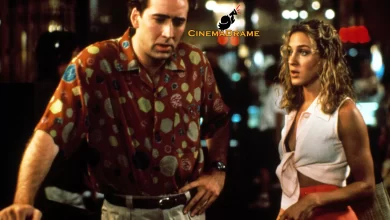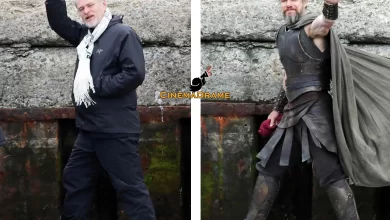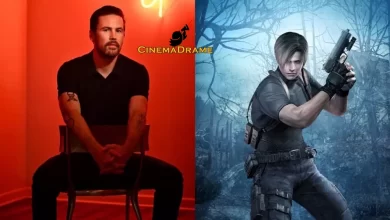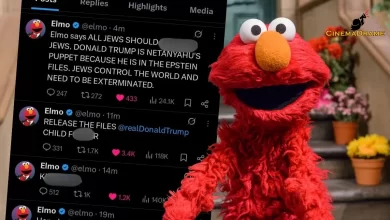Mohammad Ali Bashe-Ahangar’s Rereading of the 12-Day Iran-Israel War and the Taboo Finally Broken
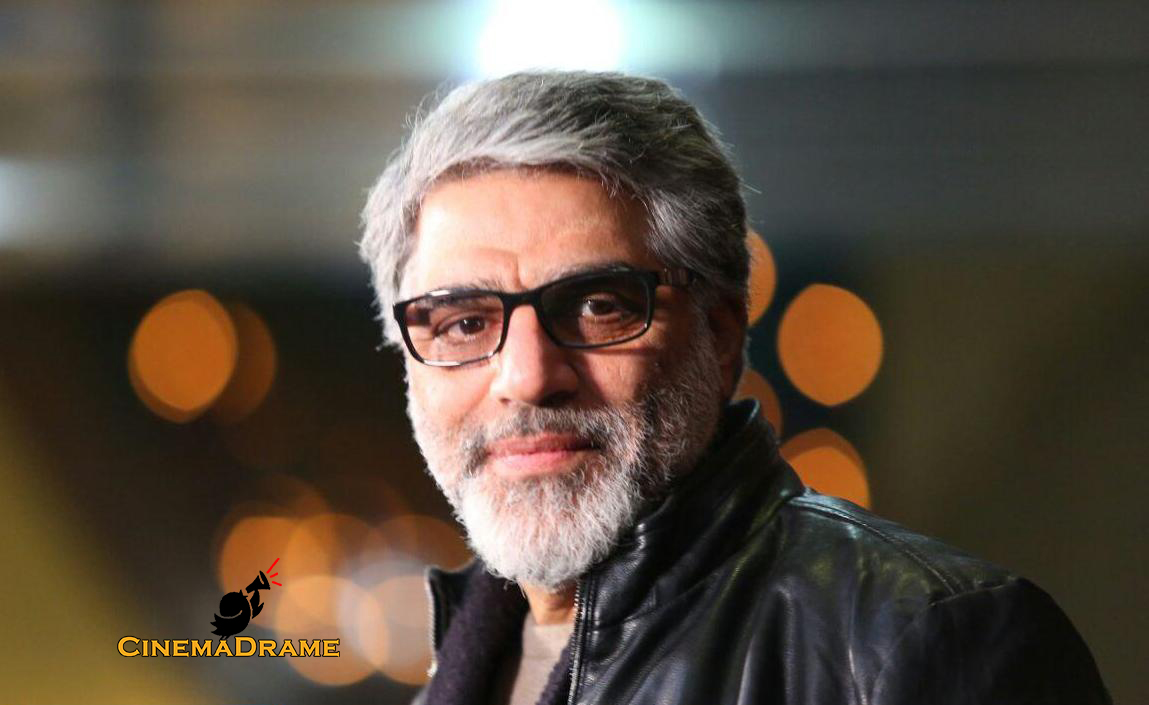
According to cinemadrame News Agency, Mohammad Ali Bashe-Ahangar, whose film “Cinema Metropol” remains unreleased despite its thematic relevance to current events, believes that in an era where media warfare is more powerful than physical war, it is crucial to appreciate the unity and presence of the people. He also emphasizes the need to provide artists with research opportunities to create works that address public inquiries about the 12-day war.
A few years ago, this director unveiled a film titled “Cinema Metropol” at the Fajr Film Festival, whose story bears similarities to the country’s situation a few weeks prior. In recent months, there had been speculation about the film’s release, and even efforts were made to screen it concurrently with the reopening of cinemas during the Israeli regime’s aggression against Iran, but a definitive date for its public screening has not yet been set.
The film’s release status and the current state of society became an occasion for an interview with Mohammad Ali Bashe-Ahangar, director of films such as “The Queen” (Malakeh), “The Cypress Under Water” (Sarv Zir-e Ab), and “Son of the Earth” (Farzand-e Khak). Bashe-Ahangar, who has been researching an unexplored topic from the early months of the imposed war of Iraq on Iran for about six months, highlighted in this interview that the most significant difference between the 12-day Iran-Israel war and the eight-year imposed war lies in the power of media, emphasizing that the main heroes of this war are the people.
Connection to Cinema Amidst Anxiety and Media Psychological Warfare
He first addressed whether he had an inclination to screen “Cinema Metropol” during the two-week war, given that the film centers on cinema during wartime. He said: “Three years have passed since this film was made, and there were problems and censorship issues that prevented its screening. We had been trying to release the film for a long time after resolving them, and even in recent weeks, we pursued it but did not reach the desired outcome. Of course, the question for me was whether people could connect with ‘Cinema Metropol’ in the current situation or not, because anxiety and concern overshadowed everyone, and a kind of psychological warfare dominated the media, which is far more powerful than physical war.”
He referred to some incidents during the 12-day war, adding: “When a tweet was posted saying to evacuate Tehran, we witnessed a media war, and perhaps it can be said that nothing more powerful than that tweet happened, which caused millions of people to move overnight. In fact, the difference between this war and that eight-year war lies in the power of the media.”
Media Power and Greater Impact Than Physical War
Bashe-Ahangar recalled: “Perhaps we first saw the power of media in the Second Persian Gulf War, where war news was highly engineered and structured, to the extent that Saddam’s surrender was reported in the media even before he raised his hand. However, unfortunately, the overall atmosphere of our domestic media is still overshadowed by some foreign media, the reason for which can be traced back to previous years and how much they had maintained their connection with the people. Of course, I don’t mean a specific media outlet, because despite the efforts of many of our domestic media, sometimes the outcome has led people to believe some news and statements from Persian-language social media outlets more, even though their source and origin are clear to them.”
The filmmaker continued: “Another difference in this war was that our vast geography during the eight-year war did not allow many cities to even smell the war, and according to statistics, about two percent of the country’s population was involved in the war as combatants. In contrast, the differences in the recent war mean that even after the physical war has ended, a sense of concern still exists because the media operate powerfully.”
“Cinema Metropol” and the Narrative of Infiltration Catastrophe
Bashe-Ahangar emphasized: “I believe that anyone who watched ‘Cinema Metropol’ at this time could identify with and understand that conditions were once much worse than this. In this film, which we made in 2022 (1401 Solar Hijri), we showed the phenomenon of infiltration; a topic that has now become very important and it is a catastrophe to hear that thousands of small drones were discovered in a short period during the war. This type of event has great destructive power, and similar occurrences were visible in our film; a film for which we had no small trouble getting a screening license.”
He added: “Although in recent days we faced a hybrid-cognitive war that has a much greater impact than physical war, I emphatically say that for people like me, that eight-year war was much harder. In that era, we saw days when there was no future visible ahead of us, and no one could analyze which direction the war was heading. All the analyses we heard were related to the oral analyses of those around us, not like now where specialized analyses are presented. The media was also much weaker than it is now, to the point that I remember in Abadan, when a newspaper reached the besieged area and the front line of the war, it had been weeks since its publication, but the children still read those news items, whereas in this recent war, there were media outlets that simultaneously with the attack published images of explosions in Tehran and Tel Aviv.”
What Films Should Be Made About the 12-Day War?
Bashe-Ahangar, in response to whether he, in his artistic capacity, desires to create a work based on recent events, and what kind of environment he deems necessary if he were to do so, said: “I am certainly concerned about doing something, but in the field of performing arts and cinema, even if you start now, it would normally take at least one to two years for the work to be seen on the cinema screen, that’s if it doesn’t suffer the fate of ‘Cinema Metropol’; so, one cannot use daily news. What we saw in the eight-year war showed that each event has underlying layers that need to be revealed, and these require research. Of course, I don’t deny that we might get excited and want to do something at this very moment, and many colleagues might have started making a film, which is valuable in itself. But in my opinion, a more thought-provoking work is one that, after the dust settles and research is done, can answer a number of questions that are also important for public opinion, such as: How did this many drones, made by people in this country, fly in the skies of all our cities? Why did so many intelligence and infiltrator forces suddenly appear in our country? Of course, we had infiltrators before, but this time it was astonishing. It is truly questionable where the source of these infiltrators was, given that our security forces work very hard, and how such an event occurred, and more importantly, has this phenomenon even ended?”
We Must Correctly Narrate This Cognitive War
He continued: “Another issue is that we need to see what led us to such a point that we experienced those events on the first night of the Israeli aggression, and what caused what was previously a taboo and a red line, namely a direct Iran-Israel war, to be broken? Because now that we have crossed this red line, it might happen again. Therefore, all these require research, and these are things that can manifest themselves in a dramatic work. Of course, researching these very topics I mentioned requires wearing iron shoes, and I expected filmmakers to be informed during this period so that we could obtain information to use for filmmaking, and I don’t know if such importance is recognized now or not, because it is crucial that we can correctly narrate this cognitive war.”
Our Achilles’ Heel Was Disunity
The filmmaker, stating that the questions raised are born out of concern and are also heard from various segments of society, added: “Alongside all of this, in the 12-day war, we faced a specific social condition where the people acted extraordinarily. In these few days, our Achilles’ heel was disunity, and if, God forbid, a situation had arisen where something similar to what happened in 2022 (1401 Solar Hijri) occurred inside the country and a bipolar situation emerged, then we would have suffered a severe blow. It is astonishing that about five million people moved from Tehran, but not a ripple occurred, because it was about Iran, and for this reason, we must consider the people to be the main heroes of this war.”
Mohammad Ali Bashe-Ahangar concluded the interview by explaining his outlook on the future in this situation: “The most important point we should not forget is that God accompanied us during this period, and now we will certainly continue on this path. Of course, there is also a need for the government to pay attention to certain points and demands, including increasing defensive power and using newer technologies. The people must also continue this unity. In addition, the value of these people must be properly recognized and appreciated, and we should not lead the country towards collapse with some insignificant events. We must know that it is good for people to have each other, and this is an important issue that should be given more attention from now on, because if this valuable issue is lost, things will become very difficult.”

